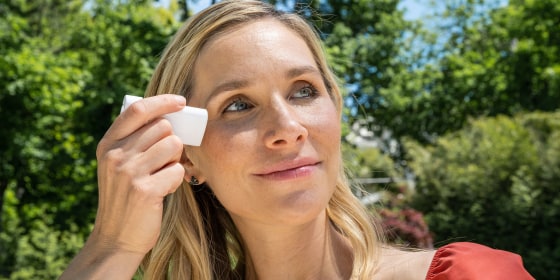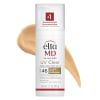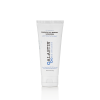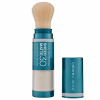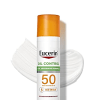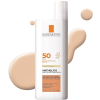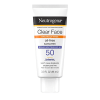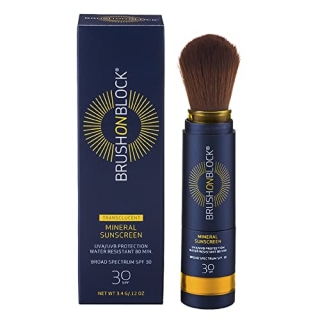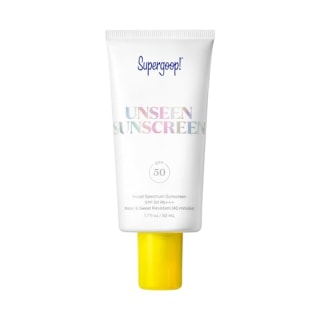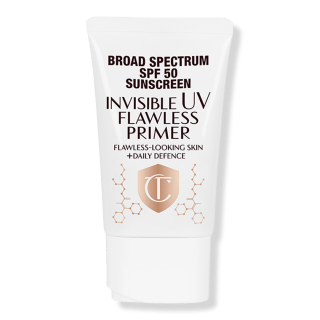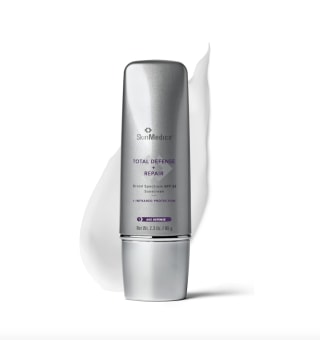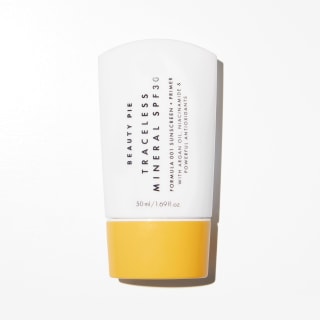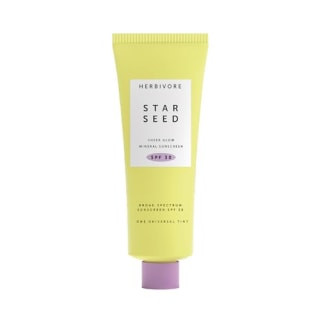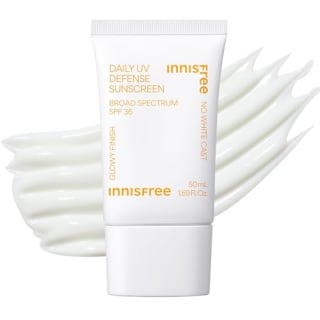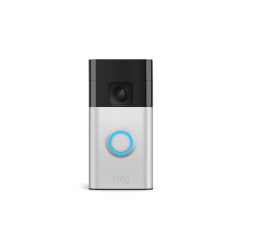Dermatologists tell us time and time again that sunscreen is the most important part of a daily skin-care routine — more than cleansers, serums, or even moisturizers. But some face sunscreens may leave an uncomfortable, greasy feeling on the skin, which can be a nightmare for those who are oily or acne-prone. Experts say sunscreens with heavier oils and occlusive ingredients like petrolatum and silicones, which create a physical barrier on top of the skin to hydrate it, can actually feel greasy and heavy on their own or underneath makeup.
I’ve been writing about skin care and sunscreens for over three years, and I spoke to four dermatologists about how to find the best sunscreen that won’t feel greasy or heavy on the skin. To help you narrow down your options, I also gathered their recommendations for the best sunscreens to shop if you have oily skin, as well as NBC Select staff favorites.
How we chose the best sunscreen for oily skin
When shopping for an oily skin-friendly sunscreen, experts recommend keeping in mind the following:
- Ingredients: Avoid sunscreens that use oils, including coconut, jojoba and mineral oil, and occlusive ingredients like petrolatum, glycerin and silicones (the most common is dimethicone) to hydrate and moisturize the skin — these will create that shine and greasiness on top of the skin. Opt for formulas that have silica gel, which absorbs oil and leaves a matte finish, says Dr. Robyn Gmyrek, a board-certified dermatologist at UnionDerm in New York City and assistant clinical professor of dermatology at Columbia University. Make sure your sunscreen or sunblock is noncomedogenic, especially if you have oily, acne-prone skin.
- Formulation: Look for lightweight gel, lotion or powder formulas. Thicker creams will usually sit on top of the skin, which contributes to it looking oily on the skin, according to Dr. Michele Farber, a board-certified dermatologist at Schweiger Dermatology Group.
- Chemical vs. mineral sunscreen: Whether you choose a mineral or chemical sunscreen depends on your personal preference. Mineral sunscreens contain active ingredients zinc oxide or titanium dioxide, which are more tolerable for sensitive skin and tend to be more drying (and good for oily skin). Chemical sunscreens, which contain ingredients like octisalate and avobenzone, can sometimes cause breakouts and irritation on sensitive, acne-prone skin. However, these sunscreens don’t feel as heavy or tacky on oily skin as mineral sunscreens do, are easier to rub in and aren’t as drying, which experts told me are a better choice for those using drying acne medications or retinoids.
- SPF rating: All of our dermatologists recommend a minimum of SPF 30 to provide the best protection against the sun’s harmful rays. It should be reapplied every 2-4 hours (and more often if you’re sweating or swimming).
Want more from NBC Select? Sign up for our newsletter, The Selection, and shop smarter.
The best sunscreens for oily skin in 2025
Listed below are expert-recommended sunscreens for oily skin and NBC Select staff picks.
Best overall: Brush on Block Mineral Powder Sunscreen
- Powder formula
- Easy to reapply
- Travel-friendly
- Can be messy
Experts told me powder sunscreens are lightweight, provide a good amount of coverage and are great for reapplication and touch ups throughout the day, especially if you are wearing makeup. “It absorbs excess oil so it can serve a dual purpose as a finishing powder, actually extending the life of your makeup, and providing sun protection. It’s also portable and won’t leave a white residue on your clothes,” says Dr. Hadley King, a board-certified dermatologist in New York City.
This is a mineral sunscreen containing zinc oxide and titanium dioxide, as well as antioxidants to protect from the sun and free radicals, according to the brand. “It’s great for the body, too, and easy to apply to acne-prone areas like the shoulders and chest without having to worry about leaving white residue on your clothing,” says King.
Type: mineral | SPF: 30 | Active ingredients: zinc oxide and titanium dioxide | Water-resistant: yes (up to 80 minutes)
Best mineral: Alastin SilkShield All Mineral Sunscreen SPF 30
- Sits well under makeup
- Absorbs quickly
- Filters blue light
- Higher price point
Former NBC Select manager of editorial operations Shari Uyehara uses this oil-free, mineral sunscreen from Alastin on her combination skin. “I like using this product under makeup or for a day in the sun,” she says. Though it’s a bit thicker and creamier than other sunscreens she’s tried, Uyehara says it rubs in nicely and leaves a soft finish on the skin. It’s fragrance-free, noncomedogenic and has a fast-absorbing formula that protects against UVA/UVB rays, pollution, and blue light, according to the brand.
Type: mineral | SPF: 30 | Active ingredients: zinc oxide | Water-resistant: no
Best chemical: Eucerin Oil Control Sunscreen SPF 50
- Absorbs oil
- Brightens skin tone
- Won't cause breakouts
- May irritate sensitive skin
- Can feel heavy
This oil-free formula has broad-spectrum SPF 50 protection, as well as a proprietary antioxidant blend of vitamin E and vitamin C to brighten the skin, according to the brand. The lotion absorbs oils and leaves a matte finish on the skin, according to Dr. Joshua Zeichner, director of cosmetic and clinical research at Mount Sinai Hospital. Keep in mind, however, that this is a chemical sunscreen containing avobenzone and homosalate, which might irritate sensitive or acne-prone skin, experts told us.
Type: chemical | SPF: 50 | Active ingredients: avobenzone, homosalate, octisalate, octocrylene | Water-resistant: yes (up to 80 minutes)
Best for acne: Neutrogena Clear Face Liquid Lotion Sunscreen SPF 50
- Prevents breakouts
- Absorbs quickly
- No white cast
- May pill
- Can irritate sensitive skin
This Neutrogena sunscreen is one of our favorites for acne-prone skin and recommended by Zeichner for those who are prone to breakouts. The lotion is oil- and fragrance-free, plus it’s noncomedogenic, so it won’t clog pores and worsen your acne, says Zeichner. Keep in mind this is a chemical formula, so you’ll want to proceed with caution if you have very sensitive skin, according to our experts.
Type: chemical | SPF: 50 | Active ingredients: avobenzone, homosalate, octisalate, octocrylene | Water-resistant: Yes (up to 80 minutes)
Best for sensitive skin: EltaMD Tinted UV Clear Broad-Spectrum SPF 46
- Won't cause breakouts
- Lightweight
- No white cast
- Minimal shade range
Great for sensitive, acne-prone skin types, this oil-free, tinted sunscreen has everything: SPF over 30, broad-spectrum protection and a tint. Plus, “it’s so lightweight that it immediately dries,” says Gmyrek. It has zinc oxide, a mineral compound, and a chemical UV filter called octinoxate — so, though it’s not an all-mineral sunscreen, the sunscreen is still suitable for sensitive skin, according to our experts. Its fragrance-free formula also includes niacinamide, which has natural anti-inflammatory effects, our experts say. If you’re looking for an untinted version, consider EltaMD’s original mineral sunscreen.
Type: mineral and chemical | SPF: 46 | Active ingredients: zinc oxide and octinoxate | Water-resistant: no
Best powder: Colorescience Total Protection Sheer Matte SPF 30 Sunscreen
- Absorbs oil
- Travel-friendly
- Easy to reapply
- Dispenser can be hard to use
This sunscreen from Colorescience, recommended by both King and Farber, is a powder option that you can wear on its own or underneath makeup. It is a mattifying, oil-absorbing and all-mineral formula that’s hypoallergenic and noncomedogenic. The brush’s bristles are also antimicrobial, meaning they can help prevent bacteria or mold from growing, according to the brand. It’s also fragrance-free, untinted and protects the skin against UVA, UVB, infrared, blue light and pollutants, according to Colorescience.
Type: mineral | SPF: 30 | Active ingredients: zinc oxide | Water-resistant: yes (up to 40 minutes)
Best lightweight: Supergoop! Unseen Sunscreen SPF 40
- Suitable for all skin types
- Also filters blue light
- Sits well under makeup
- Higher price point
- May be slightly greasy
Another chemical option recommended by Farber, Supergoop’s Unseen Sunscreen is a lightweight, oil-free option that provides broad-spectrum UVA/UVB and infrared protection, and filters harmful blue light, according to the brand. The gel formula, which has a natural finish, also doubles as a face primer to use underneath makeup, according to the brand. If you have sensitive skin, consider the mineral version of this Supergoop sunscreen, which is a favorite of NBC Select associate reporter Bianca Alvarez thanks to its lightweight consistency and mousse-like texture.
Type: chemical | SPF: 40 | Active ingredients: avobenzone, homosalate, octisalate, octocrylene | Water-resistant: yes (up to 40 minutes)
Best tinted: La Roche-Posay Anthelios Mineral Ultra-Light Face Sunscreen SPF 50
- Lightweight formula
- No white cast
- Safe for sensitive skin
- Limited shade range
This tinted mineral sunscreen comes recommended by Farber because it’s lightweight, doesn’t leave a white cast and rubs easily into the skin. It’s oil- and fragrance-free, noncomedogenic and leaves a matte finish. It’s also formulated with antioxidants to protect your skin from free radicals caused by UV rays, according to the brand.
Type: mineral | SPF: 50 | Active ingredients: titanium dioxide, zinc oxide | Water-resistant: yes (up to 80 minutes)
Best makeup primer: Charlotte Tilbury Invisible UV Flawless Primer SPF 50
- Matte finish
- Multipurpose
- Brightens skin
- Higher price point
This Charlotte Tilbury option combines the benefits of a makeup primer and sunscreen. It has hyaluronic acid to hydrate the skin, minimizes the appearance of pores and has a matte finish, says King. Its oil-free formula has SPF 50 protection and it’s infused with vitamins C and E to brighten your skin, according to the brand.
Type: chemical | SPF: 50 | Active ingredients: octinoxate, avobenzone, octocrylene | Water-resistant: no
Best splurge: SkinMedica Total Defense + Repair SPF 34 Sunscreen
- Reduces fine lines
- Non-greasy
- Sits well under makeup
- Not water-resistant
- Higher price point
This SkinMedica sunscreen is another favorite of Uyehara because it feels like a moisturizer but doesn’t leave her skin oily like other sunscreens she’s tried in the past. “I like that it’s thick enough to feel like I’m getting a good base and coverage if I wear it under makeup,” says Uyehara. The sunscreen has antioxidants to help reduce the appearance of fine lines and wrinkles, plus hydrating ingredients like squalane, glycerin and niacinamide, according to the brand.
Type: mineral and chemical | SPF: 34 | Consistency: lotion | Active ingredients: zinc oxide, octinoxate, octisalate | Water-resistant: no
Best sheer: Beauty Pie Traceless UVA/UVB SPF 30 Mineral Sunscreen + Primer
- No white cast
- Good makeup primer
- Non-greasy
- Not water-resistant
This Beauty Pie mineral sunscreen has the benefits of a primer and sunscreen all-in-one. “It blurs the pores and reduces shine while providing all-mineral UV protection in a non-irritating formula,” says Zeichner. The oil-free sunscreen is completely sheer, so you can wear it underneath makeup or on its own without worrying about a white cast or shiny finish, according to the brand. It’s also infused with soothing vitamin E and niacinamide.
Type: mineral and chemical | SPF: 30 | Active ingredients: octinoxate, titanium dioxide | Water-resistant: no
Best primer: Herbivore Star Seed Sheer Glow Mineral Sunscreen SPF 30
- Smoothing formula
- Great as primer
- Helps dark spots
- Universal tint
NBC Select associate SEO reporter Ashley Morris was initially skeptical of how well this option would work on her skin tone because of its lightly-tinted coloring. However, after trying it for the first time, she was hooked: “The tint blended out almost immediately, and I was left with a smooth, grease-free finish for the rest of the day,” she says. The sunscreen uses vitamin C to help even out skin tone and prebiotics to help maintain the skin’s moisture barrier, according to the brand. Morris also loves how well the sunscreen sits under makeup and often uses it as a primer.
Type: mineral | SPF: 30 | Active ingredients: zinc oxide, vitamin C | Water-resistant: no
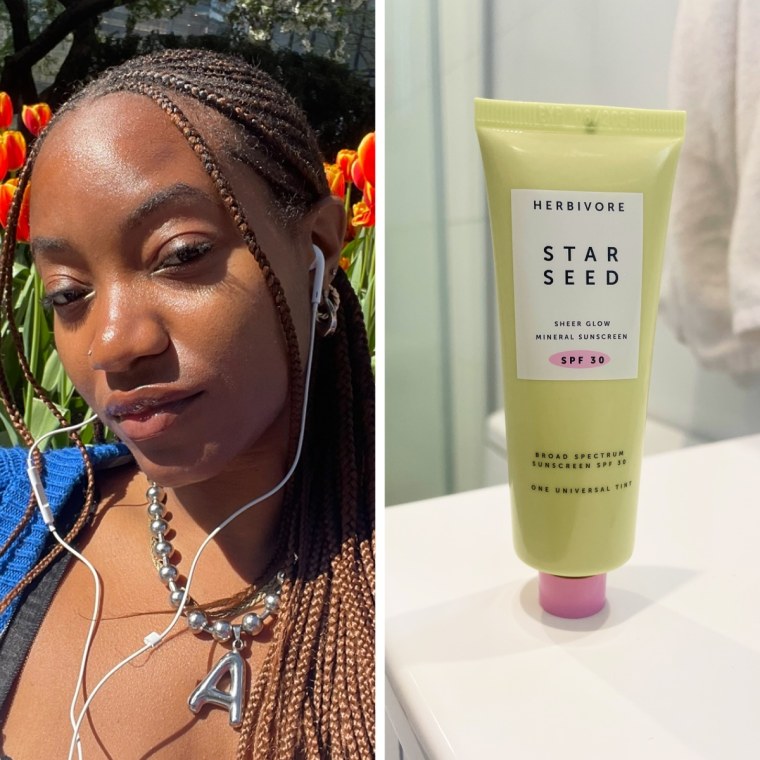
Best Korean sunscreen: innisfree Daily UV Defense SPF 36 Sunscreen
- Soothing
- Lightweight
- Great for all skin types
- Nothing to note at this time
Korean sunscreens are a favorite among our staff, and Morris especially loves this option from innisfree for her oily skin. “I’m far from a stranger to K-beauty, and this sunscreen is one of the best available, hands down,” she says. “Even when sweating, this sunscreen gives me a subtle, healthy glow that doesn’t devolve into full-on greasiness as the day goes on.” The sunscreen is made with green tea and sunflower seed oil to help hydrate and soothe skin, and has a lightweight formula suitable for all skin types, according to the brand. It’s also free of parabens and leaves no white cast, in Morris’ experience.
Type: chemical | SPF: 36 | Active ingredients: avobenzone, homosalate, ocitsalate | Water-resistant: no
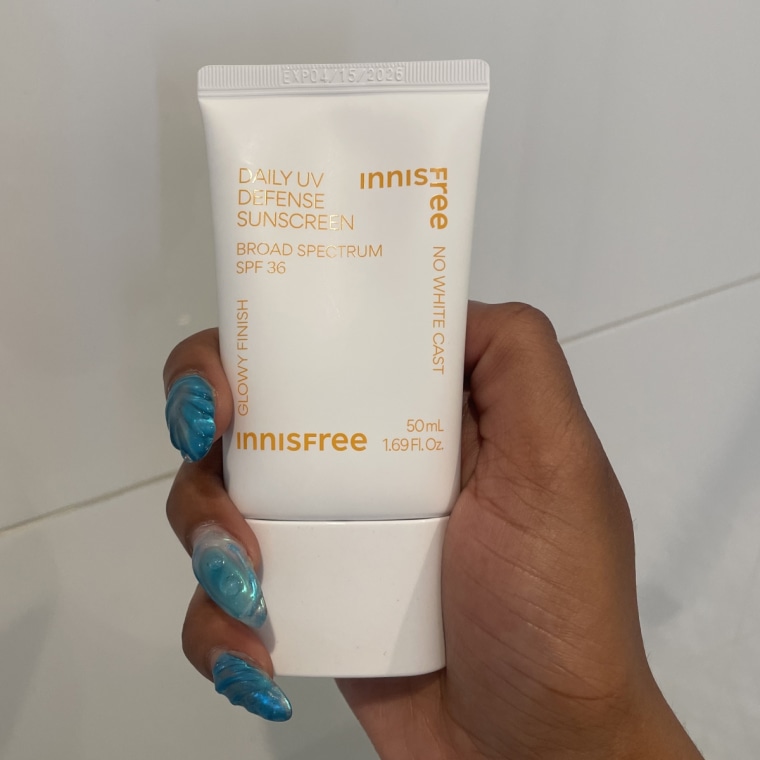
How to shop for sunscreens if you have oily skin
The key to finding the best sunscreen for your oily skin is paying attention to the product’s ingredients and formulation, our experts say. Below, we list their recommendations for what to consider when shopping for the best oily skin-friendly sunscreen.
- Pay attention to the ingredients list. Emollients, which are ingredients like squalane and shea butter that moisturize and lubricate the skin, are the biggest culprits when it comes to feeling greasy after applying sunscreen. Other ingredients to avoid include coconut, jojoba and mineral oils, occlusives like petrolatum, glycerin and silicones like dimethicone. “You should look at the ingredients list and consider sunscreens that have sport formulations, like gels and lotions, or have matte finishes, which contain silica [gel] and can absorb oil,” says Gmyrek.
- Look for sunscreens labeled noncomedogenic, which indicates the formula is designed to not clog your pores. Many people with oily skin are also acne-prone, which makes it even more difficult to find the right formula that won’t cause breakouts. Noncomedogenic ingredients commonly found in sunscreen are zinc oxide and titanium dioxide.
- Shop for a gel, lotion or powder sunscreen, which are lightweight and won’t feel heavy on top of your skin. “You might want to look for a lotion, gel or brush-on sunscreen as opposed to a cream [because] a thicker formulation might not be as tolerable on oily skin,” says Farber.
Frequently asked questions
Whether you choose a mineral or chemical sunscreen is based on your personal preferences. Our experts recommend either type as long as it’s oil-free, lightweight and, ideally, noncomedogenic. If you have very oily skin, mineral sunscreens — also known as physical sunscreens or sunblocks — can reduce some of the shine because they tend to be more drying, says King. “Mineral sunscreens may naturally be easier to tolerate for someone with oily skin because they just sit on top of the skin, it’s not absorbed,” she says.
But mineral sunscreens do have their downsides: They’re likely to leave a white cast on the skin and they can sometimes be too drying, especially when combined with topical acne medications, according to King. “They may also feel chalky, heavy or tacky on the skin, especially at higher SPF levels with higher concentration of zinc oxide,” says Zeichner. However, the latest generation of mineral sunscreens use “micronized particles that don’t feel as thick on the skin,” he says.
Chemical sunscreens rely on active ingredients like avobenzone, benzophenone and methoxycinnamate to protect you from the sun, but they can cause breakouts and irritation, which can be a major negative if your skin is already oily, acne-prone and sensitive, says King. However, they’re less likely to leave a white cast because they absorb into the skin. “Some people with oily skin may prefer the lighter texture of some chemical sunscreens that offer an ultralight feel and a matte finish,” says King.
You should apply a quarter-size amount of sunscreen on your face and a shot glass-size amount for your body at least 15 minutes before sun exposure, according to Gmyrek. “An easy rule to follow is to apply a line of sunscreen along the entire length of your middle and index fingers, and then apply that amount to the full face,” says Zeichner.
If you want the continuous SPF protection that’s promised on the bottle, you should reapply your sunscreen every two hours and after swimming or sweating, according to our experts. You should also wear sun-protective clothing, UV-shielding sunglasses and a wide-brimmed hat for the best amount of protection against the sun’s rays, says King.
Meet our experts
At NBC Select, we work with experts who have specialized knowledge and authority based on relevant training and/or experience. We also take steps to ensure all expert advice and recommendations are made independently and without undisclosed financial conflicts of interest.
- Dr. Robyn Gmyrek is a board-certified dermatologist at UnionDerm in New York City and and an assistant clinical professor of dermatology at Columbia University College of Physicians and Surgeons.
- Dr. Michele Farber is a board-certified dermatologist at Schweiger Dermatology Group in Philadelphia. She specializes in skin cancer treatments, as well as general, cosmetic and procedural dermatology.
- Dr. Joshua Zeichner is an associate professor of dermatology and the director of cosmetic and clinical research at Mount Sinai Hospital. He specializes in cosmeceuticals, skin care and cosmetic dermatology.
- Dr. Hadley King is a board-certified dermatologist in New York City who specializes in medical and cosmetic dermatology.
Why trust NBC Select?
I am the updates editor at NBC Select who has covered a wide range of skin-care topics, including cystic acne treatments, sunscreens for kids and rosacea treatments. For this article, I spoke to four dermatologists to narrow down the best sunscreens for oily skin, and highlighted their recommendations for the best ingredients and products to consider.
Catch up on NBC Select’s in-depth coverage of tech and tools, wellness and more, and follow us on Facebook, Instagram, Twitter and TikTok to stay up to date.


